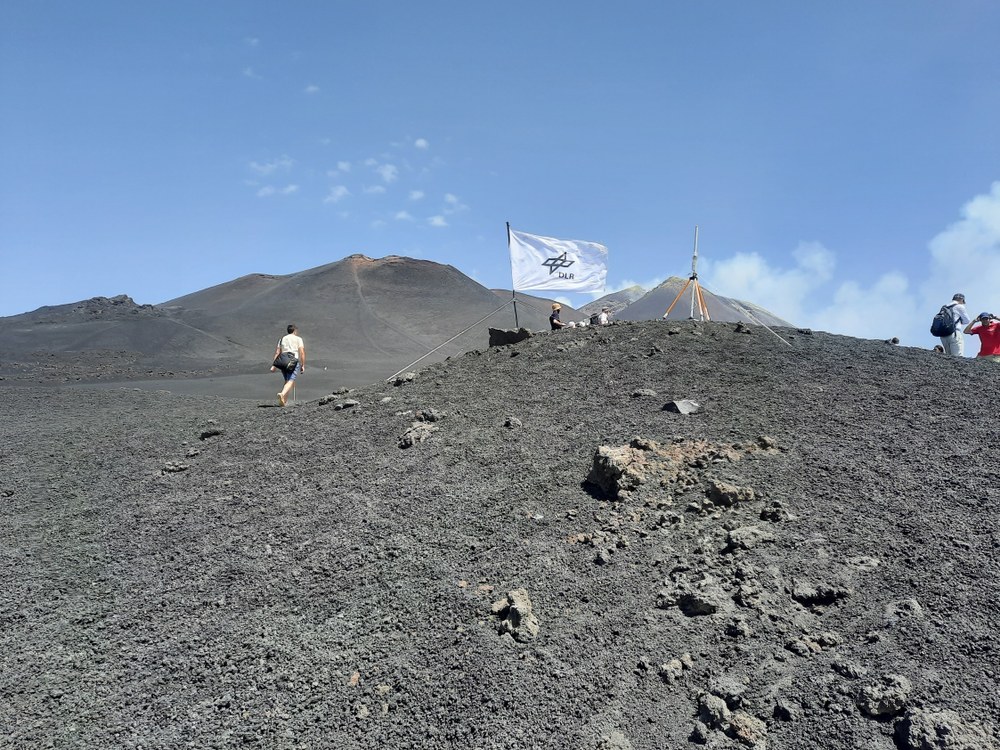ARCHES – robots explore a 'quasi-Moon' on Mount Etna; ZKI demonstrates complex situational awareness
Arches Übungsgelände auf dem Vulkan Ätna (©DLR/ZKI, 2022)
Autonomous robotic networks – creating the technical basis for these is the goal of the Helmholtz Autonomous Robotic Networks to Help Modern Societies (ARCHES) project, in which the German Aerospace Center (Deutsches Zentrum für Luft- und Raumfahrt; DLR) is participating. The focus is on environmental monitoring of the oceans, exploration of the Solar System and crisis intervention in places where it would be too dangerous for humans to work. This may be the case, for example, in the dismantling of nuclear power plants or in the inspection of damaged buildings after a disaster.
In order to obtain up-to-date situation information in case of a disaster, for the planning of large-scale events or mission planning for operations on Earth, the ZKI develops complex situation pictures from various data sources, such as satellites, aerial and drone images, but also web data, official data or other geodata.
Together, basic principles and technological solutions for the remote control of vehicles in unstructured environments and their operations in difficult terrain are being developed in the project "A.H.E.A.D.: autonomous humanitarian emergency aid devices". This project is intended to serve as a pathfinder for additional humanitarian aid support and development and, at the request of the WFP, teleoperate deliveries of food that would pose a risk to human drivers. During the development and demonstration phase of AHEAD, a simple operations centre is set up at ZKI.
ZKI was a guest observer at the Arches demonstration in order to be able to contribute in a targeted manner to future joint exercises. At the same time, it was able to demonstrate the relevance of a complex situational awareness with an exemplary ZKI web application of the Arches exercise site on Mount Etna.


